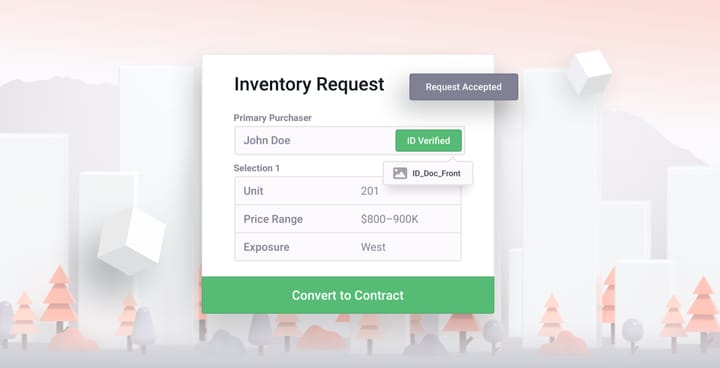How to optimize your CRM at every stage of the sales process
Key insights from first hand experience to help you reduce late night anxiety during a project launch.
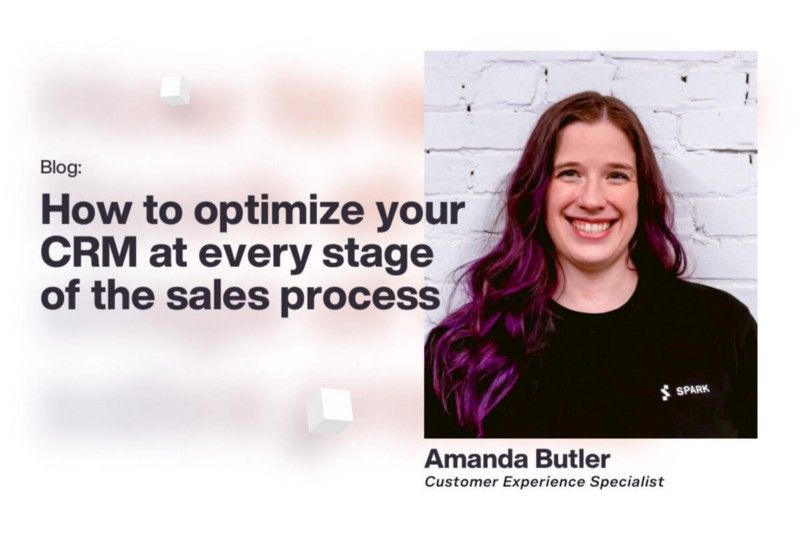
Key insights from first hand experience to help you reduce late night anxiety during a project launch
Before joining Spark, I worked as a Sales Administrator for a leading real estate developer for 5 years. During that time I became very familiar with the anxiety of late nights during project launches, the stress during the peak of a sales cycle and the importance of staying on top of your contract documents from signing to key handover.
With that said, I learned a number of ways to make things a little bit easier for myself and my team. To help make your lives more manageable, I’d like to share some key insights I learned over the years on how to optimize every stage of your sales cycle.
Get Organized Before the Sales Cycle Begins
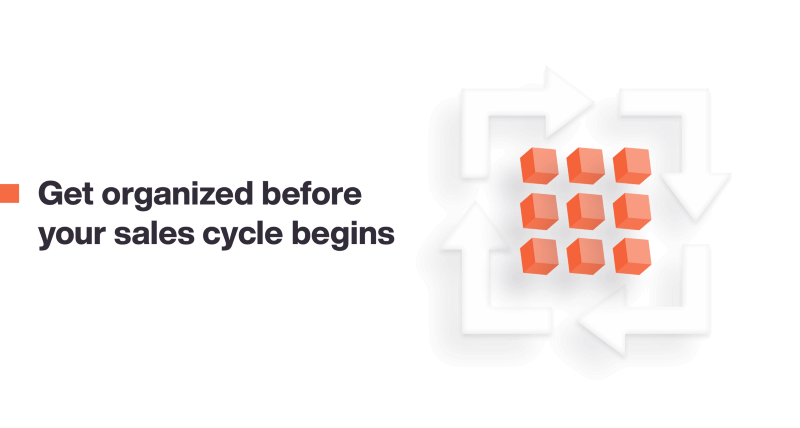
Having gone through numerous sales cycles myself, I know that there’s limited time to organize the multitude of essential things prior to the intensity of the sales cycle picking up. However, this time is vital for setting yourself up for success and efficiency and spending that little bit of extra time exploring and learning the full capabilities of your sales tools leads to amazing returns in the near future.
One step in particular that pays massive dividends is setting up Data Standardization: Good, clean data is critical for reporting that is actually useful.
- During the rush of the sales tempo, sales representatives will enter in data as quickly as possible and often in an inconsistent format, leading to a jumble of mismatched data entries and missed fields to deal with once the initial sales push is over.
- Pre-determining a data format and nomenclature for the entire team to follow is essential. By creating a set standard for everyone to follow prior to the start of your sales campaign, you’ll save you and your team the headache of cleaning up hundreds to thousands of data entries afterwards.
Another important priority that I strongly believe teams should address before the sales cycle begins is to Master Your CRM.
- Sometimes teams may not prioritize thoroughly learning or understanding their supporting tools amidst a condensed timeline. However, learning the features and capabilities of your CRM can save your team innumerable hours of tedious, manual work.
- CRMs are designed to improve the efficiency and effectiveness of your manual processes — you won’t regret taking the time to explore your CRM and learn all that it has to offer. You would be surprised how often we hear about how often users don’t realize how in-depth their full tool set is.
Things I wish I knew while I was still in New Dev: While I was still working in New Dev sales, each of the sales reps would write down our daily tracking stats on a sticky note. At the end of the day, the teams had to manually tally up the data to inform our stakeholders and investors with the progress and state of our sales. Had we spent some time getting to know our CRM better, we would have found out that it could create reports that automatically tallied up the events and send them to our stakeholders regularly, which would have saved us so much time and from so many headaches.
Maintain Momentum After Launch
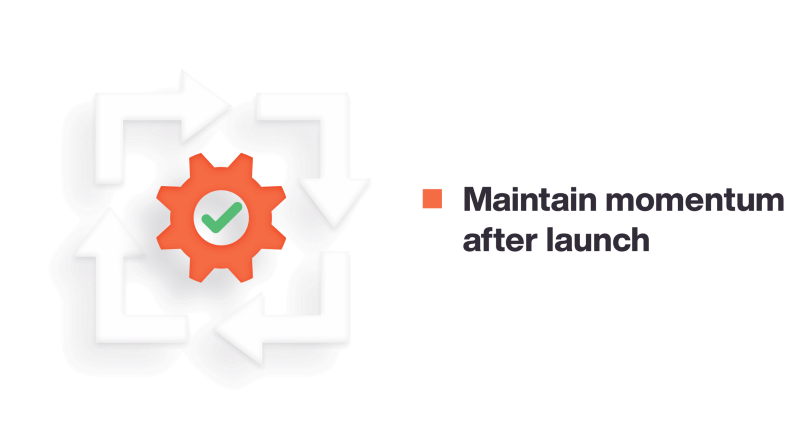
Your team is on top of prospects during a launch, but don’t take your foot off the gas post-launch. It’s just as important for your team to have its game face on and put its best foot forward during the tempo stage: this is the time to foster relationships with your prospects and sell them to your community.
That being said, there are a number of tools I recommend that are available for your team to make everyone’s efforts more efficient and effective to meet your goals.
- One of those tools are Follow-up Schedules, which can be a secret weapon for sales managers. Follow-up Schedules help prevent leads and potential customers from falling through the cracks by having pre-set intervals to follow up with leads so you don’t fall off their radar.
- Another key tool that can increase efficiency is Deposit Reminders. Deposit Reminders are a transactional campaign that allow sales teams to create reminders for those that have deposits due within a certain period of time. Similar to mass-email marketing campaigns, transactional campaigns remove the need to manually send an email to individual buyers while also ensuring that each buyer is followed up with regarding their upcoming deposit or other contract-specific information.
- Finally, Scheduled Emails can be a key contributor in increasing your team’s effectiveness and efficiency. Some CRMs allow for custom reporting that can tally these events up for you and send them to your desired stakeholders at whatever interval you desire.
At the end of a long day, do you really want to be manually counting events and data for a report?
Get Contracts Signed with Confidence
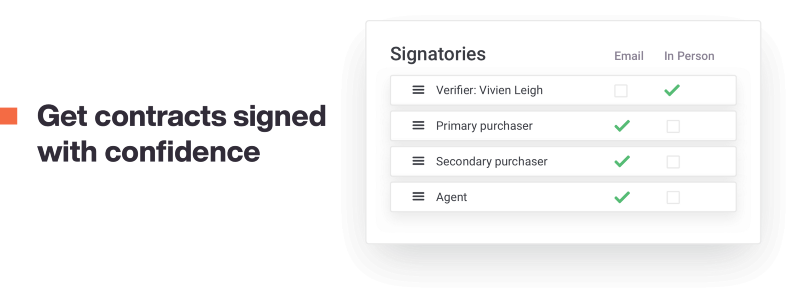
Once the sales cycle is over, you’re finally in the home stretch to get each deal signed. While you want to get this done efficiently, you also want to make sure it’s also done effectively and carefully. An excellent way to do this is through Digital Contracts.
Digital Contracts allow your team to efficiently create contracts and notify key stakeholders to expedite all aspects of the signing process. Should there be any changes needed, the changes can easily be updated across the entire contract with ease.
Things I wish I knew while I was still in New Dev: I used to have to print hundreds of hard copy contracts, then separate each contract, paperclip it, make sure it was put in the right folder, and send it to the sales office prior to launch. I’d also have to do this for the addendums which were hundreds more pages. Additionally, both contracts and addendums ran the risk of needing to be amended, requiring our team to have to spend hours repeating the process of printing and wasting even more paper.
Digital Contracts also eliminate the need to be physically present for signatures, ensuring that contracts can be signed by the necessary parties efficiently and from any location. Built for accuracy and speed, your team will be able to sign your deals with confidence.
With all this in mind, you might be wondering how you can implement these sales tools into your team’s processes. Fortunately, Spark’s integrated platform is able to provide these features and more! To learn more about how your team can optimize each stage of the sales process, email us at sales@spark.re or submit a demo request in the link below!



